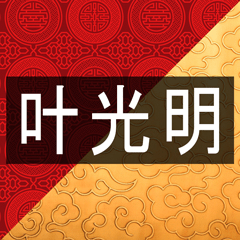Arrests in China
On December 9th 2018, Chinese security officials shut down Early Rain Covenant Church in Chengdu, arresting Pastor Wang Yi and his wife Jiang Rong, as well as several elders and 100 church members. Some have since been released, but the pastor and elders have not been freed (at the time of writing).
Pastor Wang Yi is a high profile advocate of religious freedom in China. After he was detained, the church released Wang Yi’s statement explaining and defending his nonviolent resistance to China’s rulers. “I firmly believe that Christ has called me to carry out this faithful disobedience through a life of service, under this regime that opposes the gospel and persecutes the church,” he concluded. “This is the means by which I preach the gospel, and it is the mystery of the gospel which I preach.”
Why was this faithful servant of Christ arrested? Perhaps two sets of three facts help us to ponder this question.
The first set of three facts comes from Loyola Professor Dr. Carsten Vala. He explains that the Chinese government has typically had three “red lines” from the 1990’s which unregistered Protestant congregations must not cross in order to avoid repression. “It might be helpful to think of them as the limits of toleration.”
First, illegal religious groups were expected to remain small in size, with fewer than a few dozen participants.
Second, their leaders were expected to report to authorities on their congregations and activities, especially relating to foreigners.
Third, they should not be part of larger Protestant networks “because officials worry that such ties indicate a national organisation in formation.”
Professor Vala argues that these “red lines” allowed unregistered churches to operate with the tacit permission of the Party-State’s local authorities.” Presumably Pastor Wang Yi was felt to have crossed those three lines.
Another set of three elements also help us to work out what lies behind his arrest. They comprise three possible reasons for action against Pastor Wang in the mind of the Chinese authorities.
First, there seems to be a more widespread policy of closing down bigger churches. For example Beijing’s largest unregistered “house church,” 1,500-member Zion Church, was closed down in September 2018 after refusing a government directive to install security cameras in the sanctuary.
Secondly, the Chinese leadership policy of the “sinicization” of religions in China. Sinicization is defined as “a process intended to shape religious traditions and doctrine to better conform with Chinese society and Communist Party objectives.” That means making religions agree and align with the doctrines and policies of the Chinese communist party. This policy would make large Bible believing churches, and especially their faithful preachers, an obvious early target to be removed.
Thirdly, Pastor Wang is courageously outspoken: ““This is not only a sin against Christians. It is also a sin against all non-Christians. For the government is brutally and ruthlessly threatening them and hindering them from coming to Jesus. There is no greater wickedness in the world than this.”
Prayer:
- Whatever the motives of the Chinese government, we as fellow believers should be in regular prayer for Pastor Wang Yi, his wife and fellow church believers.
- Pray for those in positions of power who make decisions about the freedom to believe and to share the Gospel in China.
- Pray for the multitudes in China who have not yet had the opportunity to turn to saving faith in Jesus Christ as the current policies are “hindering them from coming to Jesus.”
Source: ChinaSource (https://www.chinasource.org/resource-library/chinasource-blog-posts/red-lines).
